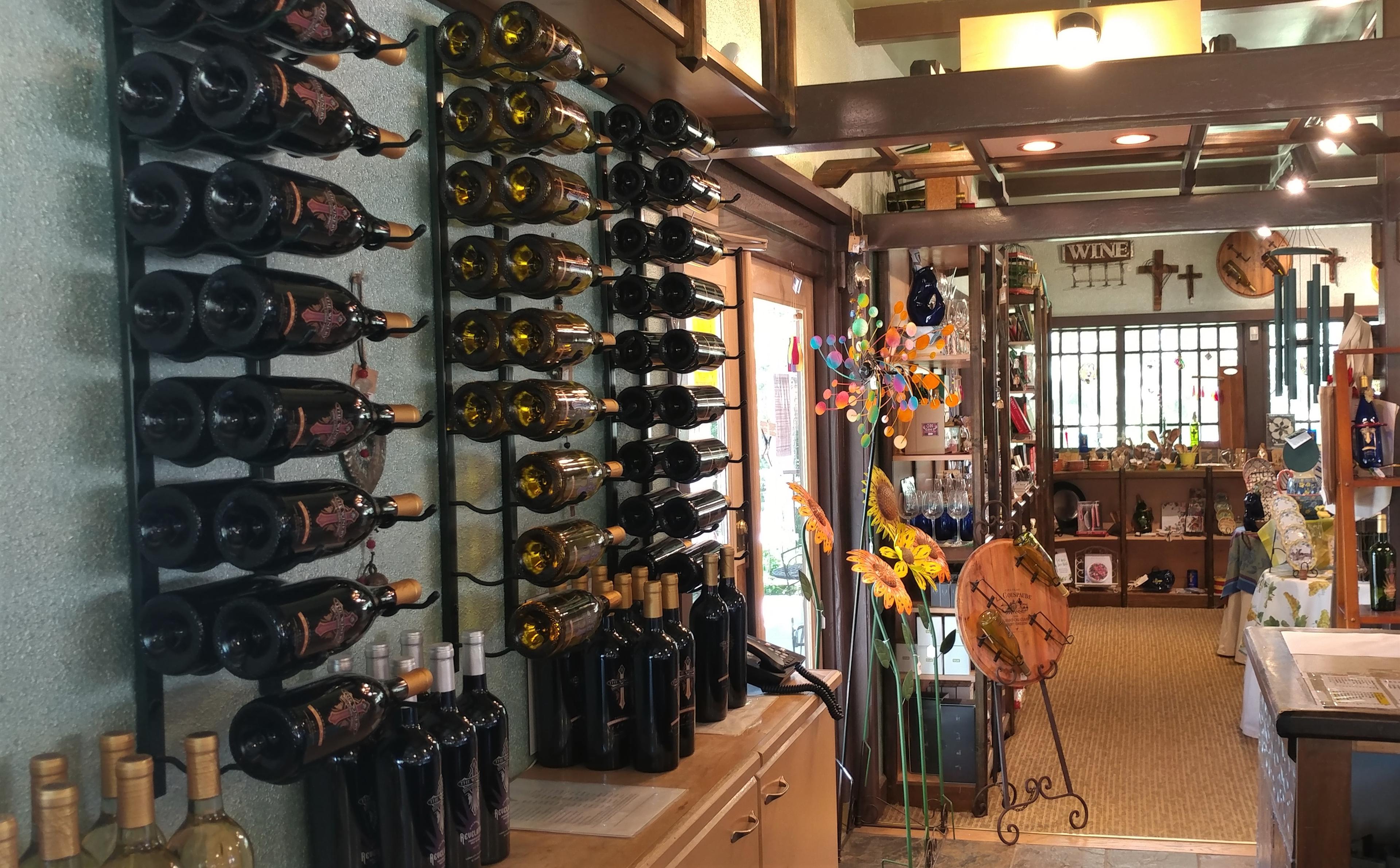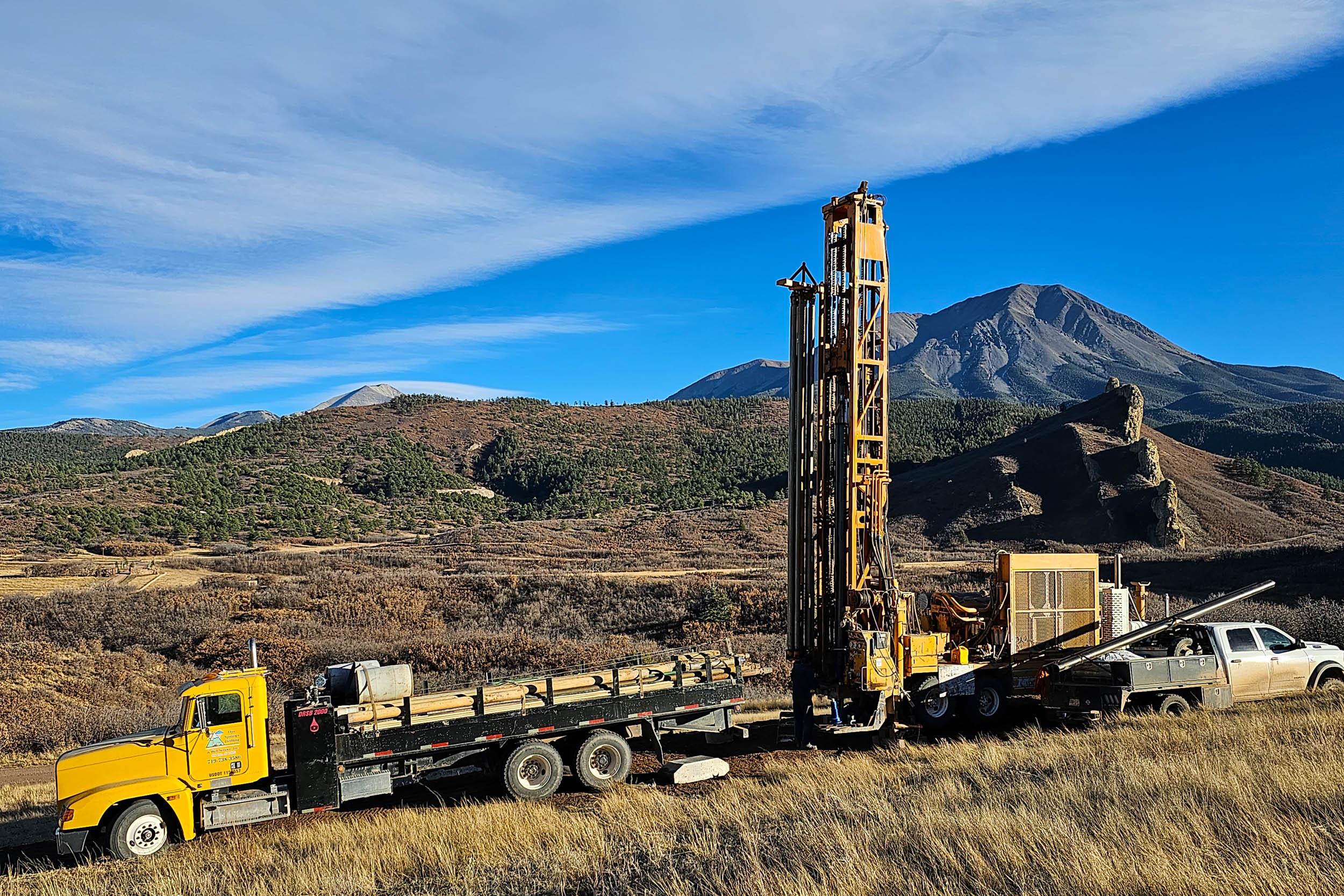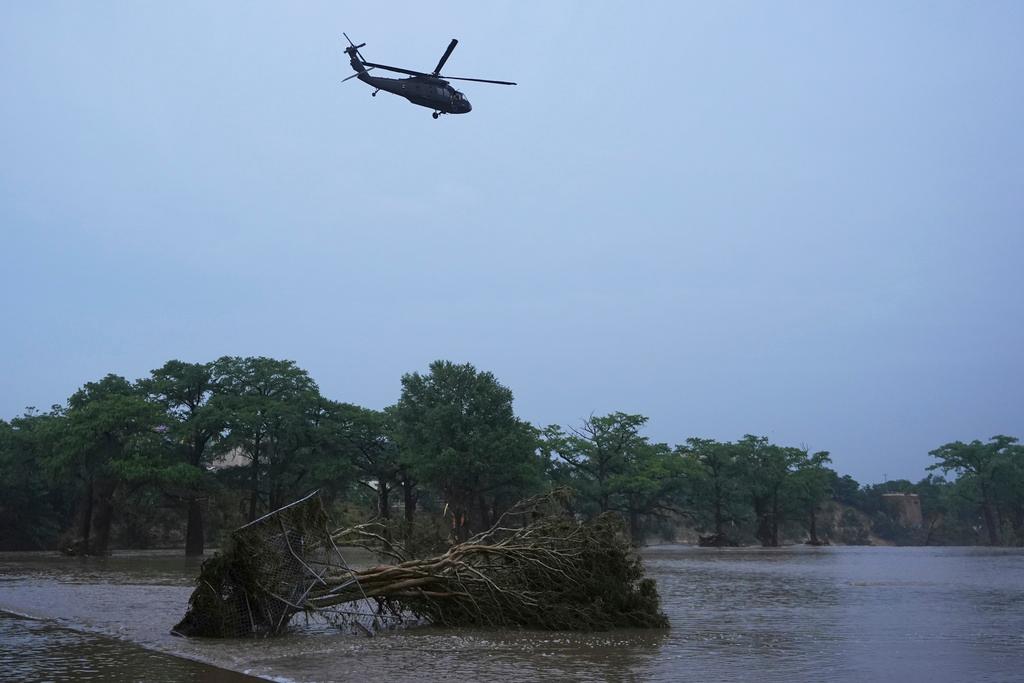When the president declared an end to combat operations in Iraq, he acknowledged the U.S. troops and civilians who helped make it happen. Many of those troops and civilians are Coloradans. We’re going to talk to some of them in our new series “Iraq War Stories.” We’ll ask what kind of a difference they made and get their take on the work still to do in Iraq. Let's start with two guests who hold elected office and took time off to serve with the military. Mike Coffman is a Republican who represents Colorado’s 6th Congressional district. He’s also a Marine Corps veteran and sits on the Armed Services Committee. Joe Rice is a Democrat who represents Littleton in the state house. He’s a colonel in the U.S. Army.
Colorado Matters
Iraqi War Stories Interview with Mike Coffman and Joe Rice
September 22, 2010
RYAN WARNER, Host:
From Colorado Public Radio, I’m Ryan Warner and this is Colorado Matters. When President Obama declared an end to combat operations in Iraq recently, he acknowledged the collective effort it took to get to this point.
PRESIDENT BARACK OBAMA:
Because of our troops and civilians and because of the resilience of the Iraqi people, Iraq has the opportunity to embrace a new destiny.
Warner: Many of the troops and civilians the president mentioned are Coloradans and we’re going to talk to some of them on Wednesdays in our new series, Iraq War Stories. We’ll ask what kind of a difference they made and get their take on the work still to do in Iraq.
Let’s start with two guests who hold elected office and took time off to serve with the military. Mike Coffman is a Republican who represents Colorado’s sixth congressional district. He’s also a Marine Corps veteran and sits on the Armed Services Committee. It was while he was state treasurer that he returned to active duty in Iraq. Coffman helped organize elections and form local governments there.
And, Congressman, welcome to the program.
REP. MIKE COFFMAN, R-CO:
Thanks, Ryan.
Warner: Also with us is Joe Rice, a Democrat who represents Littleton in the state house. He’s a colonel in the U.S. Army and he served four tours of duty in Iraq. Last year he helped train the Iraqi police and army to take over the country’s security. And thanks, Joe, for being with us.
REP. JOE RICE, D-LITTLETON:
Thank you, Ryan.
Warner: In his speech, the president declared an end to combat operations in Iraq, but 50,000 American troops will remain at least until the end of 2011 and six months after national elections, Sunni and Shiite leaders are still trying to form a government. Is the war really over? Congressman Coffman?
Coffman: You know, it’s not over at all. But in terms of the U.S. military presence, it’s obviously phasing down, although recently there’s been-- we’ve been involved in some combat, because if we’re requested in by the Iraqi security forces or we are attacked, our units are attacked in and of themselves, then clearly we will respond.
But we’re down to 50,000 troops right now in an advisory and assist role. But there isn’t a government formed yet, and there’s a lot of fighting to be done, but it’s going to be done by the Iraqi security forces and not by the United States.
I think our engagement, at this point in time, needs to be more diplomatic on the political level in terms of getting them to form a government, to have a multi-sectarian representative form of government in Iraq that involves all the different people of Iraq. And so that’s our-- I think that’s our primary goal right now, but the fighting-- combat operations or combat in Iraq is long from being over.
Warner: Rep. Rice, is the war really over in your mind?
Rice: I agree with Congressman Coffman that the war is not over. The conflicts of the 21st Century just don’t seem to have fixed start and end dates like some of the conflicts that we are more familiar with back in history, World War II and others.
It was a significant date on the calendar. August 30th was when all U.S. combat forces were out of Iraq, as the congressman said. There are still 50,000 there that are there primarily as trainers and advisors. They will be out with the Iraqi security forces, both the Iraqi army and Iraqi police, so certainly some type of being involved in combat is possible and also there will be some that are involved in counter terrorism operations in coordination and partnership with the Iraqi counter terrorism forces.
So, the political capacity building that Congressman Coffman spoke of is absolutely correct and there’s a lot going on on that front and I think what we need to be transitioning to and not just the United States, but other countries around the world and organizations, is engagement with all different levels of Iraqi society and Iraqi organizations and individuals to integrate them into the international community so that they’re not isolated and so that we can help develop everything from like in a local police department in Iraq, forensics capabilities.
That’s something that civilian police agencies around the world do, in fact, do in other countries, help other countries develop those capabilities and that’s just one of many, many examples that could be necessary and useful in Iraq.
Warner: Give us one more example.
Rice: I would say something like human rights training. There’s the Iraqi security forces and the vast majority of them are good people trying to operate honorably, but they don’t know what that is. They’ve had 35 years under a dictatorship and these types of how do you establish what is a proper way to interrogate a suspect and how do you use actual evidence as opposed to just trying to extract confessions in courts.
I mean, those things are not something-- knowledge that policemen and soldiers, no matter how well meaning, are born with. They have to be taught it.
Warner: And you say that can come from the international community, from global support.
You know, I just want to throw this out. Did the United States win and maybe it’s too early to say. But, Congressman Coffman, what do you think?
Coffman: Well, it is too early to say. I think that the mission that was entered into, first by President Bush and followed on by President Obama is a high-risk, high-reward proposition. The notion that we could establish a representative form of government, a democracy, if you will, in the heart of the Arab Middle East and that that will lead to peace and stability that will spread throughout the entire region, that chapter is yet to be written.
But I think that, you know, we could have accomplished our security objectives in terms of regime change by not, you know, having this large footprint on the ground of U.S. forces. I think we could have done it by providing direct support to the opposition forces against Saddam Hussein, as opposed to invading the country, but I believe, fundamentally, that once in we had an obligation to make it work and to bring it to a just conclusion.
And I think that this administration has essentially followed along this time table that is conditions based that has brought us to this point so far, which I think is a success in and of itself. But Iraq has a long ways to go to demonstrate its ability to govern?
Warner: On the win question, Rep. Rice?
Rice: We’re not going to have a victory parade. There’s not going to be a firm date, like there was in victory over Japan or even an end to the war like there was in Korea. This is a different kind of warfare and winning is much harder to measure.
One way you could just say you could win is that Iraq is relatively stable and is not either a direct threat to the United States or is not becoming a vacuum where threats to the United States can incubate. So that is certainly one measure that I think there is some progress on, but really it’s going to be years before, or even generations. I hope we have a pretty good idea over the next few years and even in my lifetime about how things are going to work out in Iraq.
Warner: Some of your general perceptions there of Iraq today and the U.S. mission and I want to get to some specifics of your own work in Iraq. You both have spent time there. Mike Coffman, as we mentioned, you took leave of absence as state treasurer to help organize local elections and form local governments. Joe Rice, you were part of the command training the Iraqi police and army to take over the country’s security duties.
Will you each tell us about a specific moment, a specific interaction, when you felt you made a difference? Congressman Coffman?
Coffman: Well, I think more to the point where certainly that I made a difference, the Coalition forces made a difference, but where the Iraqis made a difference, as well, and that was during the election where we had really worked hard and, in fact, did offensive operations two weeks prior to the election to get the enemy to keep their heads down so that attacks were minimized on election day so people could go to the polls and vote.
But on particular polling site, in Al Anbar Province, it was attacked and one of the Iraqi poll workers got shrapnel in their leg and the Marines swept in to medevac that person and take him to a battalion aid station to get the shrapnel out and get him stitched up.
And he refused to be medevaced because he said he wanted to be there. He wanted to stay until every Iraqi citizen who wanted to vote that day, that had the courage to come out and vote, had the opportunity to do so. And so it was only after the polls closed that he allowed us to get him out of there and to get him fixed up.
Warner: On that same question, Rep. Rice, a moment you remember feeling like you-- it wasn’t for naught that you’d gone over to Iraq?
Rice: One of the things I’m most proud of is that the local council system in Baghdad, that I was just one part of helping form and helping guide and helping give them information, is still functioning today and they have modified some parts of it. And we never simply imposed something. It was always done working with them, but it’s nice to see that there actually is a functioning local council system in the city of Baghdad that myself and other people from Colorado like Peter Kenney had a role in helping to shape.
Warner: And this-- if we walked into this council, it would like something like a Denver City Council meeting?
Rice: It would look something like that. It’d be a little larger and there would be enough similarities that I think anybody whose seen a democratic local council operate and the things that cities do, I think that they would recognize a lot of things by walking into Baghdad City Hall or Amanat Baghdad.
Warner: And is that a body that is made up some of the different factions in Iraq, Sunni and Shia and--?
Rice: Yes, it is. It’s relatively reflective of the city’s population — men, women, Sunni, Shia, Kurds, Christians. So it is a relatively functioning body. And, frankly, the national government in Iraq could learn a lot, I think, from the local governments.
But the good news there, even though there are problems in forming a national government, to skip to that topic for a moment, the good news is that, for large measure the conversations are still taking place in the political system and a lot of the groups have not gone out of the political system and gone back to violence like they had several years ago.
Warner: You’re listening to Colorado Matters. I’m Ryan Warner and all throughout the combat phase of the Iraq War we were talking with Coloradans who played a role in that country and now that the president has declared combat operations officially over, we’re checking back in with some of them to hear about whether they felt they made a difference when they were in Iraq and to talk about the country’s future.
When was the last time you both were in Iraq. Joe, how recently was it?
Rice: It was October of 2009, so less than a year ago.
Warner: Okay. And Congressman Coffman?
Coffman: I was in there in June of 2009.
Warner: Okay, both of you. And how did it feel? Did it feel different, Representative?
Rice: Yes, it did feel different, certainly, than the other three times that I had been there.
The first time was just a bit unsettled, still, during that first year. Then my two other times back there, the second one was during-- just before the surge, so things were really-- the violence was getting out of control.
The third time, security was better, but it was being provided by U.S. military forces and this last time, security was still better, but it was being provided by the Iraqi security forces.
Warner: And that was evident?
Rice: So that was one key part that was clearly noticeable and felt different, obviously, on the streets.
Warner: Congressman?
Coffman: Well, first of all, I went-- my last time back of June of 2009 was as a member of the United States Congress and let me tell you, Col. Rice, it’s a lot better going as a congressman than as a soldier or a Marine on the ground.
And-- but I got to meet with Gen. Odierno and Ambassador Hill, who was the-- who were there at the time and it was great for them to tell me about how far that they had come, although there was still a long ways to go, in terms of bringing this conflict to a conclusion.
But it was right at that time that we had, in June of 2009, that we had ended combat operations in the urban areas. So I was there during the first phase of the de-escalation of our involvement in Iraq.
Warner: You mentioned Ambassador Hill. That’s Christopher Hill, who has since joined the faculty at the University of Denver, heading up the graduate school of international studies there.
You know, I have to say that both of your answers have rung to me fairly optimistic and it’s a big question about whether the very different groups in Iraq will come together and will form a functioning government. What if that doesn’t happen or what if it doesn’t happen quickly enough? Or what if it doesn’t happen well enough? What then? Rep. Rice?
Rice: Those certainly are big questions and I think I am somewhat optimistic. I think it’s a realistic optimism. It’s not based on just fantasy.
But I am personally biased. I’m personally connected to the situation, very close to it, very close to a lot of Iraqis and a lot of Americans who have suffered and some aren’t even here any more. So I look for everything we can do to continue to positively influence the situation.
If things go completely south over there, then we’re going to have, as a nation, evaluate what our options that are in our own best national interests, as well as meet our obligations to the Iraqi people. It’s hard for me to envision a scenario where we go back in militarily, at least in large numbers.
But I think things are on a fairly good trajectory. Are they good yet over there? Absolutely not. There’s much less violence, but there’s still, far, far too much.
So emerging democracies often have trouble. All we can do is what we can do to try to continue to positively influence the situation. Ultimately, it’s up to them.
Warner: Congressman Coffman, if the government fails to gel, what then?
Coffman: I happen to think that it probably will. It may take a while. There may be some violence involved in the process.
The Sunni Arabs are 20% of the population and they were the ruling elite under Saddam Hussein and I think that they have the most to lose by not being incorporated in some type of a government, because they’re really dependent in their area of-- by having some distribution of the oil revenues to maintain their local economy and their governance and their standard of living.
They really don’t have a very well developed economy. They’ve got some agriculture, but that’s about it, but it’s not going to sustain them.
So I think, at the end of the day, it’s oil that’s probably the glue that holds much of the country together, having some kind of equitable distribution of the oil. So, you know, I’m still optimistic that the government’s going to form. It took a long time last time, after the last election. It seems to be taking longer this time, although we had a very close vote between two different-- the Allawi and the Maliki separate political blocs.
So, I’m still relatively optimistic about that. Right now, you’ve got the biggest threat, I think, to the government forming is al-Qaida and the al-Qaida elements in the country and trying to keep the government from forming just due to sectarian violence, in their attacks, particularly on the Shia.
So, there’s still a lot of problems, but I think they’re going to be able to form a government.
Warner: Do you imagine that you’ll both go back? Rep. Rice?
Rice: You know, I certainly hope I go back to Iraq. We’re still there for another 15 or so more months, until December 2011. That’s when all U.S. military forces, under the present agreement, have to be out of Iraq.
Warner: That’s presuming it’s not amended, somehow.
Rice: Yeah and I think if it is amended, I think substantially that milestone will be still be met. There may be some other ways in which we continue a relationship with Iraq through a NATO training mission or something like that, but clearly all signs point to a much-diminished U.S. military presence, if any military presence.
So it would be-- I was there at the beginning, a couple of times in the middle. I would like to be there at the end. I’d be the last guy out on the last helicopter, if they’d let me.
But one of the things that I’ve been working with Congressman Coffman and Congressman Perlmutter from Colorado, also, on, is an idea to continue a different relationship with Iraq. It kind of gets into the police training mission that we were talking about before and that would be establishing relationships between police agencies or law enforcement agencies here in the United States and law enforcement agencies in Iraq to help aid that professional development and the continued development of technical skills like forensics and everything else.
There is a model for this. In the 1990s, after the Berlin Wall came down, you’ve got all these new countries in Eastern Europe, state national guards from the many states here in the United States were paired with these smaller countries in Eastern Europe and they developed these ongoing training relationships where they would exchange small numbers of people or come one way or another for an exercise or for some technical skill training.
I think that same model, which was very successful and, frankly, is still running today — Colorado is still partnered with Slovenia — and has recently been partnered with Jordan, which, obviously, is not in Europe. But they started a similar model with some countries in the Middle East and I think that is what we need to do with Iraq.
Clearly, they want to partner with other countries around the world besides the United States, but I think this is one way that we can positively continue a relationship with the country of Iraq.
Our forces have, as some of the Iraqis say, mixed blood in the sand. We have a relationship, whether we like it or not, and I think it’s in all of our best interests to try to continue to do what we can to help Iraq develop to be a stable society. Part of that is security forces and this could be part of that.
Warner: Congressman Coffman, is that something you would pursue on a congressional level?
Coffman: Yeah, absolutely. I think it’s a great idea. Anything we can do to establish agency to agency relationships and looking at things like Rep. Rice is working on in his capacity as an Army Reserve colonel.
So, I just think that’s very important.
Warner: Gentlemen, thanks for being with us.
Rice: Thank you, Ryan.
Coffman: Thanks, Ryan.
Warner: Mike Coffman is a Republican who represents Colorado’s sixth congressional district. Joe Rice is a Democrat who represents Littleton in the Colorado House.
Our series Iraq War Stories continues next week with a Fort Collins man who’s lending his expertise in agriculture to Iraqi farmers. George Melton is starting farmers co-ops there and that idea of a farmer having ownership is still radical in a country where for years a dictator controlled things.
GEORGE MELTON, Agricultural Advisor, U.S. Department of Agriculture:
The government owned the land. The government owned the production assets. The government would sell or provide all of the fertilizer, seed, et cetera, and the government of Iraq would take the crops when they were produced. So the concept of a democratically owned group of assets, farmers that can own it and manage it and make their own decisions is a innovation.









